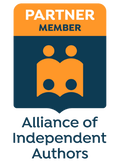|
There are many national and international celebration days that you may consider ridiculous: World Sleep Day on July 27th, International Talk Like a Pirate Day on September 19th, Lost Sock Memorial Day on May 9th … Whilst you may find the idea of World Tea Day (celebrated on May 21st) a little redundant, there are many reasons to celebrate the world’s most popular beverage— most importantly, its contribution to the welfare of writers everywhere. So, I’m here to tell you why the best remedy for your writing (other than a writing advisor) is sitting with a cup a tea. I want to be… ALERT!Out of the many varieties of tea, black teas are the darkest and strongest in flavour. This also means they pair well with milk and sugar to create a milder, sweeter taste. Black teas are by far the most popular form of tea in the United Kingdom, where bags of English Breakfast tea can be found in every home and hotel. The versatility of English Breakfast means there are many different ways of preparing it, making it the perfect drink for an easy and palatable caffeine hit that is also affordable and accessible. Its universal acclaim means the vast majority of the public know how to make a cup, so if you share a house, you might be able to ask a friend to do you a favour. Though if you’re looking to refresh your flavour rotation with a punchier wake-up call, the answer might lie abroad… Mate (or maté) tea is a traditional South American drink. The caffeine content of one cup equals around that of a cup of coffee. Whereas coffee is more acidic and may cause you digestive problems if overconsumed, mate tea’s active ingredients make it a healthier option all round. As well as waking you up, its strong, distinctive taste might provide you a well needed kick into full alertness. I want to be FOCUSED!Making tea, much like making coffee, is a ritual. Taking time in the middle of writing to prepare your tea can break up a frustrating session. Sometimes, as a writer, you can get stuck on an unhelpful train of thought. Perhaps your brain runs away with a plot, or you find yourself writing the ending when you really need to work on the beginning. Stopping to prepare tea is a tried and tested way to give yourself a mental break. The tea undoubtedly most associated with ritual is green tea. Green tea is hugely popular in Japan, both because of its part in elaborate historical tea ceremonies but also for its effect on cognitive function. Drinking green tea has been proven to lead to increased alertness, an elongated attention span and better performance on cognitive tasks such as writing. I want to be INSPIRED!When in the writing mood, everything inspires. Tea can be one such inspiration, coming in a wide range of colours from milky white to glassy pink. Bubble tea shops, now a familiar feature in town centres, make it their mission to serve up such multicoloured concoctions in easy portable cups.
If you’ve never tried a cup of bubble tea and are a little sceptical about the idea, visit a local shop and try a fruit Jasmine infusion. Fruit Jasmine teas are colourful, flavoursome and sweet. They’re a great starter tea and might introduce you to flavours you’ve never tried before such as winter melon or lychee. They are also a pleasure to look at, with a base of bubbles and chopped fruit swirling in a mixture of coloured tea and ice. Most bubble tea shops have sitting areas where you can write away from home. Try visiting one for a writing session to soak in the sights, sounds and tastes… the visual treats in store might just get you thinking about giving your book an illustrated touch. Of course, though writers can try every trick under the sun, the writing mood is unpredictable. So, if you’d like to just have your tea and drink it, maybe consider picking up a new book from a Rowanvale author (you can even get paid to do this!) and have a happy World Tea Day! |
Archives
April 2024
Categories
All
|


 RSS Feed
RSS Feed

